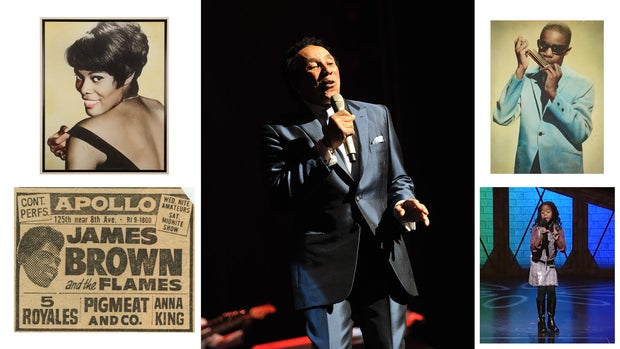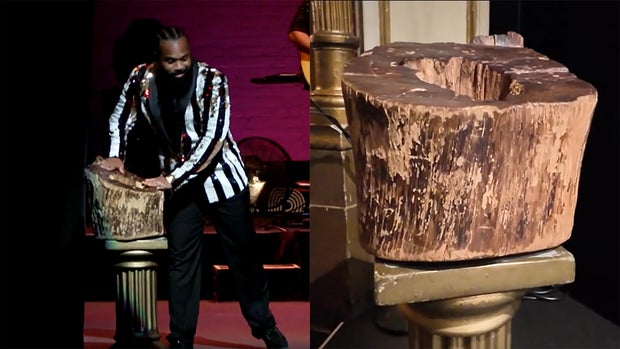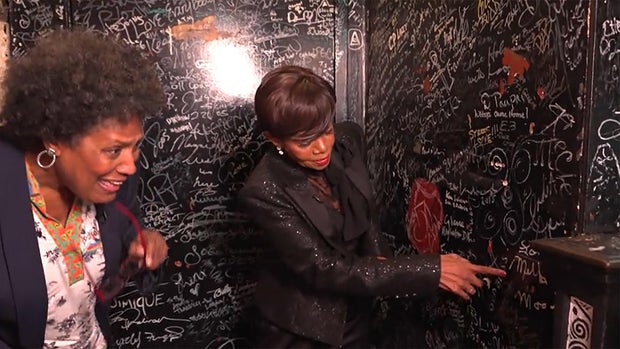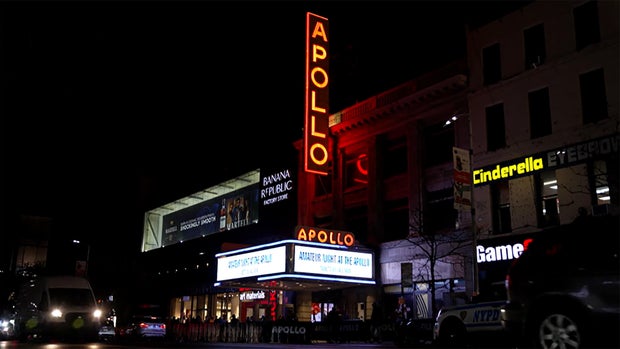On Wednesday nights, the Apollo Theater in Harlem is one of the hottest tickets in town. But there’s no celebrity headliner. It’s Amateur Night! And the audience is there to pick the NEXT breakout star.
“I know how tough the crowd can be,” said Kyle Parks, a 23-year-old singer from Yonkers, New York. “I know that’s what makes this place legendary, what goes into it.”
Parks won the crowd over with his performance of “A Change Is Gonna Come” by Sam Cooke. Others … weren’t so lucky. Marion Caffey, longtime producer of the Apollo’s iconic Amateur Night, said, “They’re brutally honest. And just sometimes just brutal, not necessarily honest!”
CBS News
Caffey says it’s the longest-running singing competition in history. “Well, ‘The Voice,’ and ‘America’s Got Talent,’ and ‘American Idol,’ and ‘Star Search,’ we are the great-grandfather of all of that,” he said. “This was the blueprint.”
The theater’s motto is “Where stars are born and legends are made”… and it’s launched plenty of them, from James Brown and Ella Fitzgerald, to Stevie Wonder, Lauryn Hill and H.E.R.
Apollo Theater
And if you’re wondering why every performer rubs that tree stump, according to Caffey, “This stump used to be a full tree. And it stood outside the Lafayette Theater. And they would pull leaves from the tree for good luck. And now everyone comes here and rubs the Tree of Hope for good luck.”
Does it work? “Well, I think it’s good luck if you win, and it’s not such good luck if you lose,” Caffey said.
CBS News
But it worked for the award-winning singer Dionne Warwick, whose career skyrocketed since she and her gospel group won Amateur Night back in 1958.
What did winning prove to her? “Well, that we were good enough, first of all,” Warwick said. “And that we won $50!”
Warwick said going to the 1,500-seat theater was like going to school and getting a crash course in performing: “The old saying is true, it is so true: ‘If you can make it at the Apollo, you can make it anywhere.’ They brought out the very best in you. Every single time I played the Apollo, it got better and better and better. And I mean, I felt like I was at home.”
But it wasn’t always welcoming. Before it was the Apollo, it was a whites-only burlesque theater. In 1934, under new ownership and a new name, it opened its doors to everyone. Music historian Guthrie Ramsey said, “It was one of the first to allow Black and white patrons to enjoy the music together. After all, it’s New York City, and the Black community was growing. And so, it was basically a business model decision to allow Black citizens in.”
Ramsey says the story of the Apollo and the story of America are intertwined. “It was a representative of anything that was going on in America, you could see the Apollo Theater reflecting that,” he said. “It’s all of our histories. We all have a stake in it.”
During the civil rights movement, the Apollo became more than just a performance space. Motown great Smokey Robinson said, “Sittin’ in and marching and doing all this, and going to restaurants and they don’t wanna serve us, and all that, we couldn’t stay in any hotels – it was a rough time, you know?”
But the Apollo was like a beacon. “It was the beacon,” Robinson said. “It was the Black music staple. It was just, you know, where the Black acts came. Couldn’t play nowhere else!”
Robinson says the first time he and The Miracles performed here, he was a nervous wreck. They bombed! “I was frightened to death to be at the Apollo Theater,” he said. “Had we not had a record out and supposedly be ‘professional’ at that point, that the guy with the hook would have came and took us off the stage, because we were terrible!” he laughed. “We were just amateurs, we were so terrible, until Mr. Schiffman, the guy who owned the Apollo at that time, called Berry Gordy, who was our manager and stuff at that point, and told him he wanted his money back!”
In the decades that followed, as more places became integrated, the Apollo struggled financially, and closed its doors more than once. “We could’ve lost the Apollo, but we’re still here,” said actress and singer Melba Moore. She says she grew up watching shows at the theater, and then got a chance to perform here – and later became a guest host on “It’s Showtime at the Apollo,” the TV version of Amateur Night.
Moore says this theater is something to be treasured.
CBS News
Tonight, the Apollo Theater is being awarded a prestigious Kennedy Center Honor at a ceremony that we’ll see later this month on CBS.
Michelle Ebanks, president and CEO of the theater, says it’s the first time an institution (rather than a person) has received such recognition. “The idea of the Apollo opened up this whole universe, so that everyone could see this is American culture, too,” Ebanks said. “This is the magic of art, the power of art.”
This is also the year the theater begins its 90th season. And to Smokey Robinson, the Apollo is still a force to be reckoned with. “You know, it’s the beginning. It’s the proving ground. It’s the Apollo!”
CBS News
For more info:
Story produced by Robbyn McFadden. Editor: Remington Korper.








